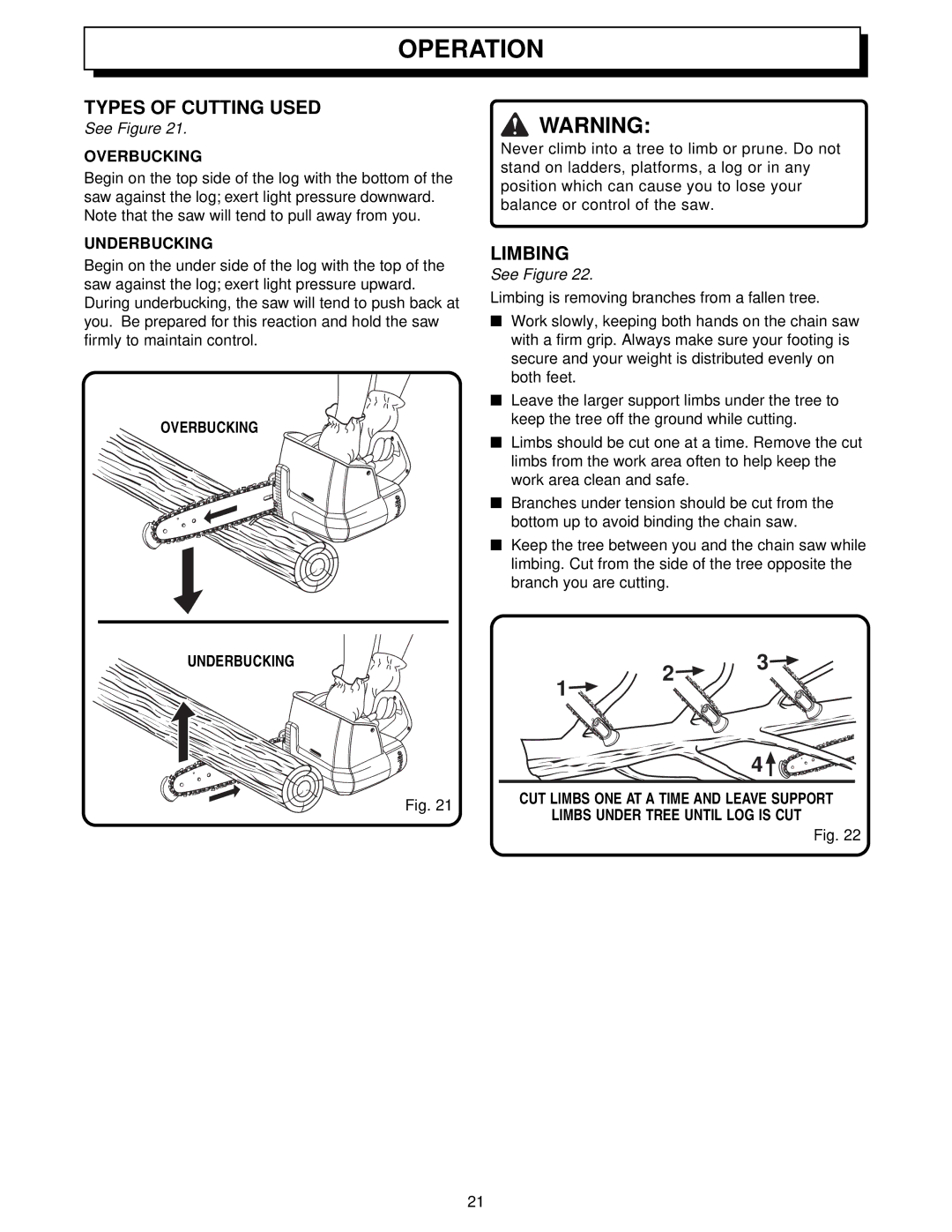UT34010 specifications
The Homelite UT34010 is a versatile and efficient string trimmer designed for homeowners and landscapers alike. Renowned for its lightweight construction and user-friendly features, this trimmer simplifies yard maintenance tasks, making it an ideal choice for those looking to maintain pristine lawns and gardens.One of the standout features of the Homelite UT34010 is its powerful 34cc two-stroke gas engine. This engine is designed to deliver robust performance, ensuring that users can tackle even the toughest jobs with ease. The power generated by the engine allows for efficient cutting, helping to streamline the trimming process and reduce the time spent on yard work.
Another key characteristic of the UT34010 is its 18-inch cutting swath. This ample cutting width enables users to cover large areas quickly, making it an effective tool for trimming around fences, trees, and flower beds. The trimmer is equipped with a bump-feed head, which allows for easy line advancement; simply tap the head on the ground, and new line is fed out, ensuring uninterrupted work without tedious manual adjustments.
The design of the Homelite UT34010 also emphasizes comfort and ease of use. It includes a padded handle, reducing strain on the user's hands during prolonged use. Additionally, the unit features an adjustable shoulder strap that aids in weight distribution, making it less taxing on the back and arms. This ergonomic design allows for extended periods of operation without discomfort.
In terms of technology, the UT34010 incorporates a fuel-efficient engine that adheres to modern emission standards, making it a more environmentally friendly choice compared to older models. This focus on efficiency ensures that users can complete their trimming tasks while minimizing their carbon footprint.
The durability of the UT34010 is another important aspect, as it is built with robust materials that can withstand the rigors of regular use. The trimmer's construction ensures longevity, so it can be a reliable tool in any homeowner's landscaping arsenal.
Overall, the Homelite UT34010 string trimmer combines power, efficiency, and comfort in a package designed for ease of use. Whether for occasional yard touch-ups or regular maintenance, this trimmer stands out as a solid investment for anyone seeking a dependable and effective landscaping tool.

